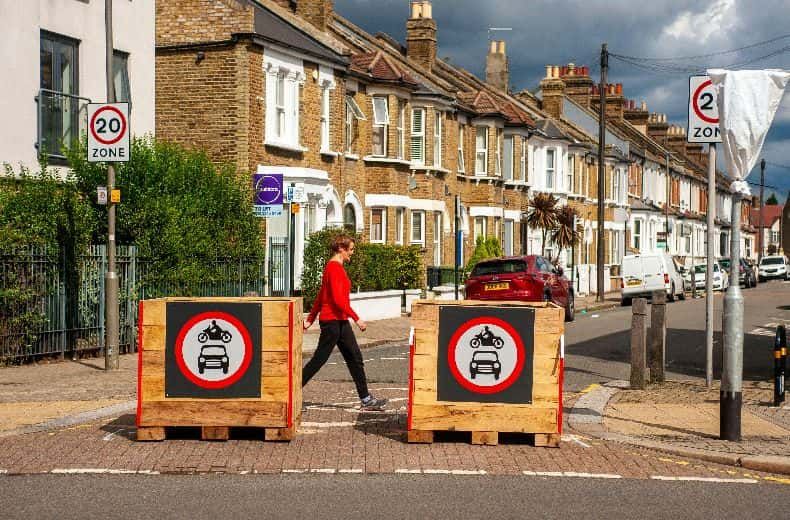The Department for Transport (DfT) said that Grant Shapps has been clear that “future funding allocations will be reduced, and clawbacks could also be imposed” where local authorities do not consider affected communities.
LTNs often close roads to motor traffic and reallocate road space to walkers and cyclists with segregated cycle lanes and wider pavements to encourage ‘active travel’.
The schemes have already faced critics, with some suggesting the planters, bollards and barricades have made congestion worse. The controversial measures have even faced backlash from a minority and some have even vandalised roadblocks and poured oil on spaces left for cyclists.
Mr Shapps voiced his objections in a letter sent to council leaders in July, where he highlighted problems with using barriers to widen town centre pavements.
He explained that the fixtures could “prevent pedestrians from crossing the road, cause congestion for buses and motor traffic, and impede access for kerbside businesses”.
The Transport Secretary has given councils a further £175 million, after a £250 million investment to promote cycling and walking announced in May.
Recent funding for the schemes has been fuelled by concerns that the coronavirus pandemic could lead to an increase in road congestion.
Read: Overturned planters and oil-slicked roads: low-traffic neighbourhood backlash

Complete peace of mind for less
• Cheaper than AA Price Promise or your money back^
• We get to most breakdowns in 60 mins or less
• Our patrols fix 4/5 breakdowns on the spot

Rules for LTNs state that “Schemes should be monitored and evaluated to help make decisions as to whether the scheme should be made permanent, and if so in what form.”1
A survey from Kantar Media last month found that 65% of people across England support reallocating road space to cycling and walking in their local area.
Nearly four in five people (78%) are in favour of measures to reduce traffic in their neighbourhood, the poll suggested.
- Coronavirus: Using your car uring COVID-19
- Rat running and cut-through traffic – should it be illegal?
- The Highway Code – UK road signs and what they mean
- More drivers could be fined as MPs look to grant increased power to councils
RAC head of roads policy Nicholas Lyes said that local authorities face a “difficult balancing act between encouraging behaviour change and not negatively affecting drivers and businesses”.
“Ensuring local authorities consult on changes is not only an important step for greater buy-in from the public, it also increases the chances of schemes being well-designed for the benefit of all road users and ultimately being successful in the longer term,” he added.
Prime Minister Boris Johnson said: “We want to do everything we can to make it easy for people to include some activity in their daily routines – whether that’s cycling to work or walking safely to school.”
Get 30 driving tips that will save you money
Running a car isn’t cheap, but there are some easy things you can do to keep your costs down. Get these tips and more useful driving articles sent straight to your inbox now.














